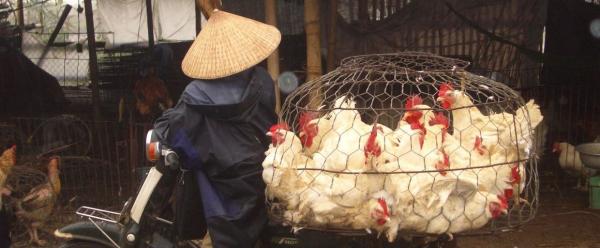Institutional news 21 January 2026
- Home
- Press area
- Press releases
- Research priorities for sustainable cotton growing
Research priorities for sustainable cotton growing in Africa
.jpg)
For five thousand years, cotton growing has been inextricably linked to the history of humankind. It is currently grown in some 60 countries, but both cotton and its cultivation now face challenges related to climate change, competitiveness and sustainability.
The cotton sector is marked by substantial regional disparities. China, India, the USA and Brazil account for some 70% of total global output, while Africa in its entirety produces less than 10%. Consumption, for its part, is concentrated in Asia
CIRAD's cotton research is backed by almost 70 years of experience and close collaboration with African partners. In an overall context of State withdrawal from the operational management of production chains, CIRAD has placed Africa at the heart of its priorities for research and action, with the publication of its roadmap for cotton. The roadmap aims to adapt scientific innovations in order to build a sustainable cotton sector in Africa, and sets out four ambitions to this end:
- Adapt cropping practices to climate change and reduce their environmental impact
- Make African cotton more profitable and competitive
- Build capacity among players in African cotton chains
- Position African cotton chains better on a territory scale.
CIRAD's cotton research concerns 35 scientists from seven research units, covering eight disciplines ranging from the agricultural to the social sciences.
Alongside this publication, CIRAD invites stakeholders in the cotton sector to contact cotton@cirad.fr to continue discussions of its vision.
The AIRCoA project, an example of the application of CIRAD's ambitions
A project, Adapting Innovations for Resilience to climate change for smallholder Cotton farmers in Africa (AIRCoA), was launched in 2023. It relies on three types of scientific innovations tailored to smallholdings in Africa: cotton varieties tolerant of climate hazards, soil health rejuvenation by means of carbon capture, and use of botanical biopesticides. These sustainable solutions have the potential to boost farmers’ incomes and to foster enterprise.
For five thousand years, cotton growing has been inextricably linked to the history of humankind. It is currently grown in some 60 countries, abut both cotton and its cultivation now face challenges related to climate change, competitiveness and sustainability.
The cotton sector is marked by substantial regional disparities. China, India, the USA and Brazil account for some 70% of total global output, while Africa in its entirety produces less than 10%. Consumption, for its part, is concentrated in Asia
CIRAD's cotton research is backed by almost 70 years of experience and close collaboration with African partners. In an overall context of State withdrawal from the operational management of production chains, CIRAD has placed Africa at the heart of its priorities for research and action, with the publication of its roadmap for cotton. The roadmap aims to adapt scientific innovations in order to build a sustainable cotton sector in Africa, and sets out four ambitions to this end:
- Adapt cropping practices to climate change and reduce their environmental impact
- Make African cotton more profitable and competitive
- Build capacity among players in African cotton chains
- Position African cotton chains better on a territory scale.
CIRAD's cotton research concerns 35 scientists from seven research units, covering eight disciplines ranging from the agricultural to the social sciences.
Alongside this publication, CIRAD invites stakeholders in the cotton sector to contact cotton@cirad.fr to continue discussions of its vision.
The AIRCoA project, an example of the application of CIRAD's ambitions
A project, Adapting Innovations for Resilience to climate change for smallholder Cotton farmers in Africa (AIRCoA), was launched in 2023. It relies on three types of scientific innovations tailored to smallholdings in Africa: cotton varieties tolerant of climate hazards, soil health rejuvenation by means of carbon capture, and use of botanical biopesticides. These sustainable solutions have the potential to boost farmers’ incomes and to foster enterprise.
Cotton worldwide in a few figures:
- Cotton production worldwide totals 25 million tonnes per year, 70% of which comes from China, India, the USA and Brazil.
- Asia consumes 90% of the world’s cotton fibre in its textile industry.
- Average fibre yields worldwide are around 775 kg/ha, albeit with substantial geographical disparities: the figure is more than 1000 kg/ha in South and North America, East Asia, Australia and Europe, but less than 500 kg/ha in West and Central Africa (less than 500 kg/ha) and less than 300 kg/ha in East and southern Africa (less than 300 kg/ha).



























